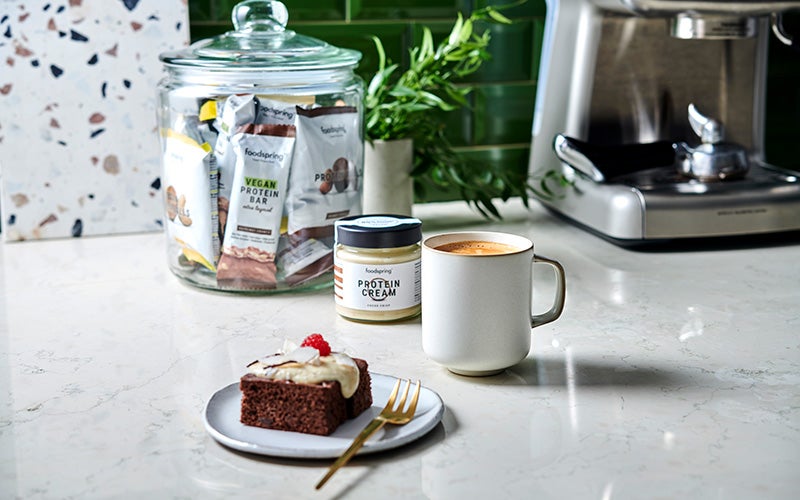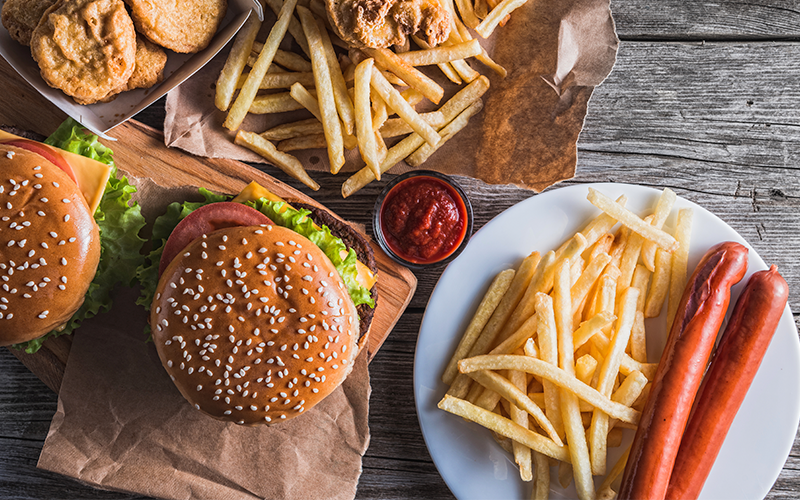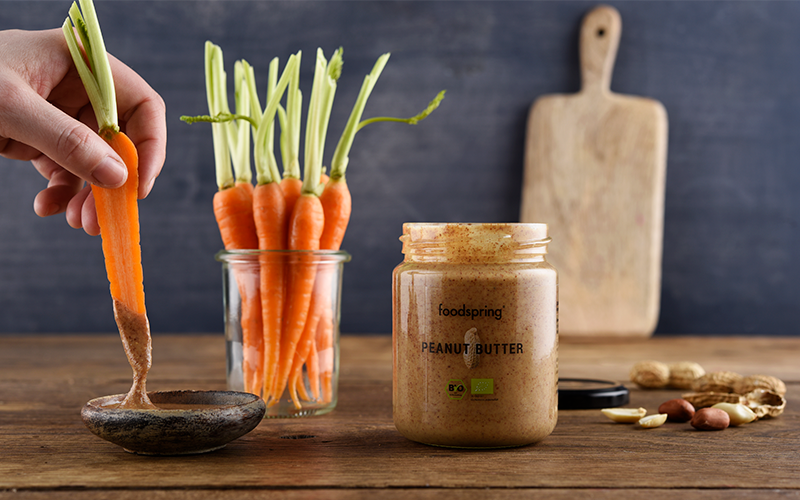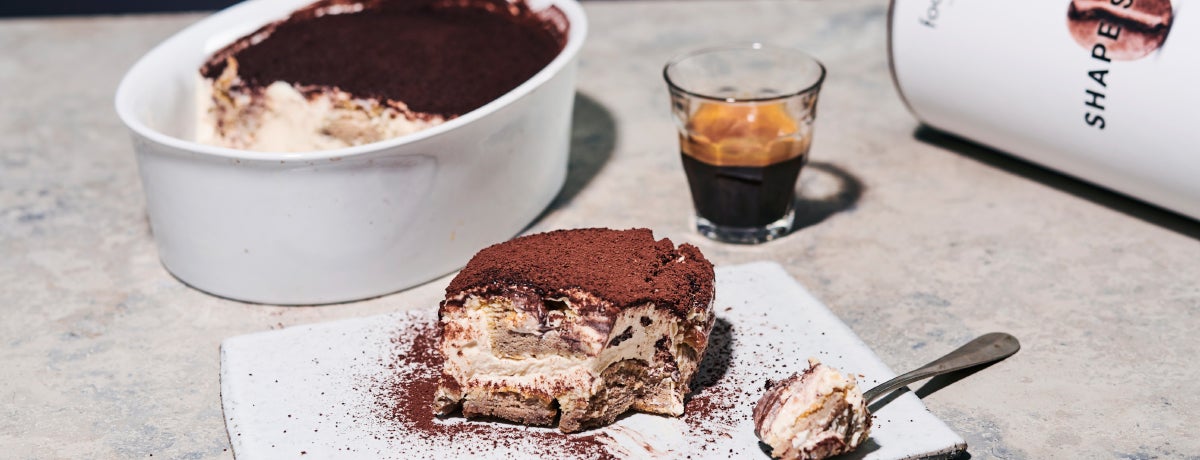Why we get food cravings & how to stop them in their tracks
 ©foodspring
©foodspring
Your goals are set and your nutrition plan is in place. Your motivation’s high. Yet those food cravings are already waiting in the wings to throw a wrench in the works. What to do when you get the munchies? We’ve got the why behind food cravings, not to mention the best tips to keep them from derailing your hard work.
Who doesn’t recognize the feeling: You’ve bought your new sports gear and organized your meal prep containers. You’re motivated to finally eat healthier and exercise some more. And all this goes well, at least for a few days. But then a ravenous hunger, a food craving, comes around the corner, and chocolate, chips, and other junk food sneak their way onto your plate — despite that first class preparation. Why is this such a common story?
What are food cravings?
The sudden, intense urge to eat a particular food is a food craving. It varies from person to person whether it’s an appetite for something sweet, salty, or fatty. However, once the craving’s taken hold of us, our thoughts circle around that flavor until it’s been satisfied – this often results in food cravings.

Cravings for sweets and salty foods: Causes
Stress, tiredness, or old habits: the cause of each food craving can be different. We’ve rounded up the most common causes of cravings below.
Too little sleep
Some research1 has shown that lack of sleep can make us eat more. When we feel tired and lack energy, our body produces more of the appetite-stimulating hormone ghrelin. This sends a signal to our brain to get the missing energy from energy-rich food. At the same time, the production of the hormone leptin decreases. Among other things, leptin is responsible for the feeling of fullness in our body. So the next time you’re craving fat- or carbohydrate-rich food without really feeling satisfied, treat yourself to a power nap instead of that coveted portion of fries.
Food makes us happy
We’re going through a breakup, feeling devastated, and we reach for chocolate as a consolation. Things are going haywire at work, we’re stressed and frustrated, and we shove a handful of gummy bears into our mouths. Why? Because food makes us happy. And this has even been scientifically proven2! When we eat, our body releases the happiness hormone dopamine. So it feels like eating cheers us up, in the short term.

Tip: With our healthy snacks, you can get through any low mood without the guilt. And you’ll get important nutrients instead of pure sugar.
Habits
After a long day at work, we love to relax and enjoy a delicious meal. This is because we want to reward ourselves for all the hard work. After all, we’ve earned a cozy evening on the couch with some ice cream. It doesn’t take long for us to get used to rewarding ourselves with food. With every achievement, we automatically ponder what we can treat ourselves to – after all, rewards are a must! How about a sinless tiramisu or a chocolatey mocha ice cream?

Too high a deficit
Are you totally motivated to stick to your diet and training program? That’s great! But be careful that you don’t overshoot the target. You shouldn’t exceed a maximum calorie deficit of 500 kcal during a diet. If you consume too few calories over a longer period of time, your body automatically switches to “starvation mode.” It will hoard all the calories you consume and store them as fat. At the same time, your desire for certain foods it knows will fill you up, such as burgers or pizza, increases, as your body signals your brain that it needs nutrition, and quickly. We recommend a moderate deficit and 3 large or 6 smaller meals a day. Read our article on dietary rebalancing to learn more about how you can successfully change your eating habits.
Tips to help reduce cravings
To avoid being helpless in the face of your food cravings, check out our 3 top tips on how to survive any cravings.
1. Have lots of water
Many people don’t drink enough, although we should be drinking 2-3 liters of liquids a day. Next time you feel hungry, drink a big glass of water first. Maybe you’re just thirsty.
2. Distraction
Often we snack out of boredom. We snack without even thinking about it, most of the time. Whether at work or watching TV – we snack to keep our mouths busy. It’s always handy to have some chewing gum or healthy snacks like cucumber or carrot sticks at hand.
3. Protein-rich foods
Proteins keep us full longer than carbohydrates. With a delicious shake, you can have a sweet dessert without the sugar and guilt. Our Whey Protein contains 24g of protein per serving.
Summary
Do you suddenly have an unstoppable appetite for sweet, salty or fatty food? Then perhaps you’ve been hit by a food craving.
- Not getting enough sleep, eating as a reward or out of boredom, and too large a calorie deficit can all be causes of food cravings
- Drinking enough water, eating a healthy diet rich in protein, and keeping yourself occupied can help against a constant feeling of hunger
Sources for this article
We at foodspring use only high-quality sources, including peer-reviewed studies, to support the facts within our articles. Read our editorial policy to learn more about how we fact-check and keep our content accurate, reliable, and trustworthy.
- 1 Austin D, Lin L, Mignot E, Taheri S, Young T (2004). Short sleep duration is associated with recued leptin, elevated ghrelin, and increased body maxx index. – PLoS Med. 2004 Dec;1(3):e62. Epub 2004 Dec7.
- 2 Allan S. Kaplan, Caroline Davis, Jaqueline C. Carter, James L. Kennedey, Robert D. Levitan (2014). Food cravings, appetite, and snack-food consumption in response to a psychomotor stimulant drug: the moderating effect of „food-addiction“ – Front Psychol. 2014; 5: 403.

































